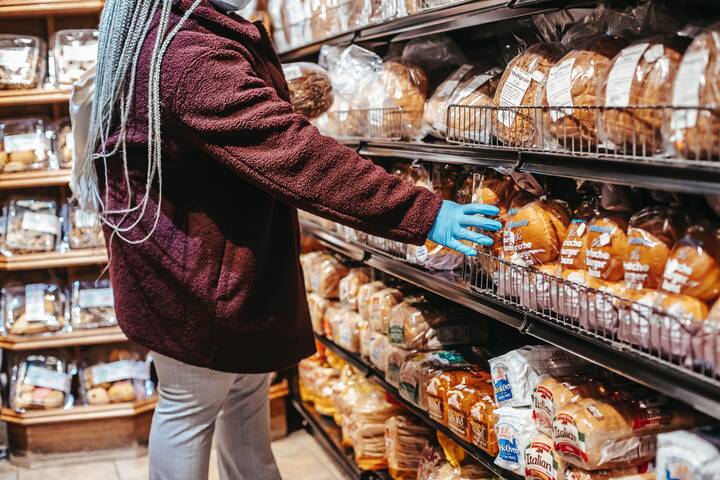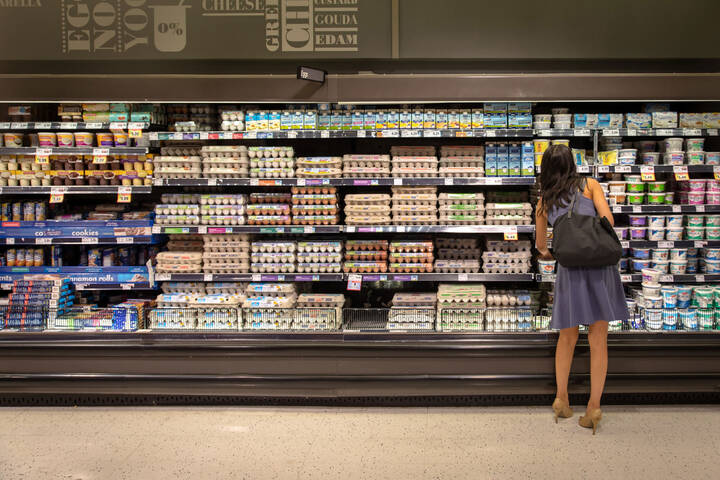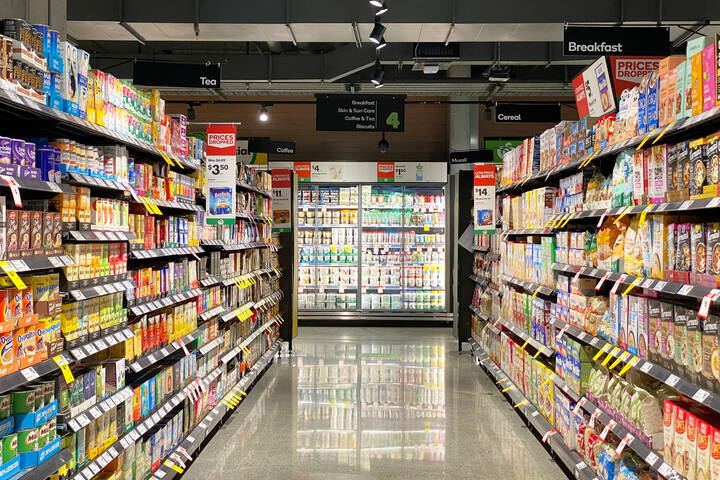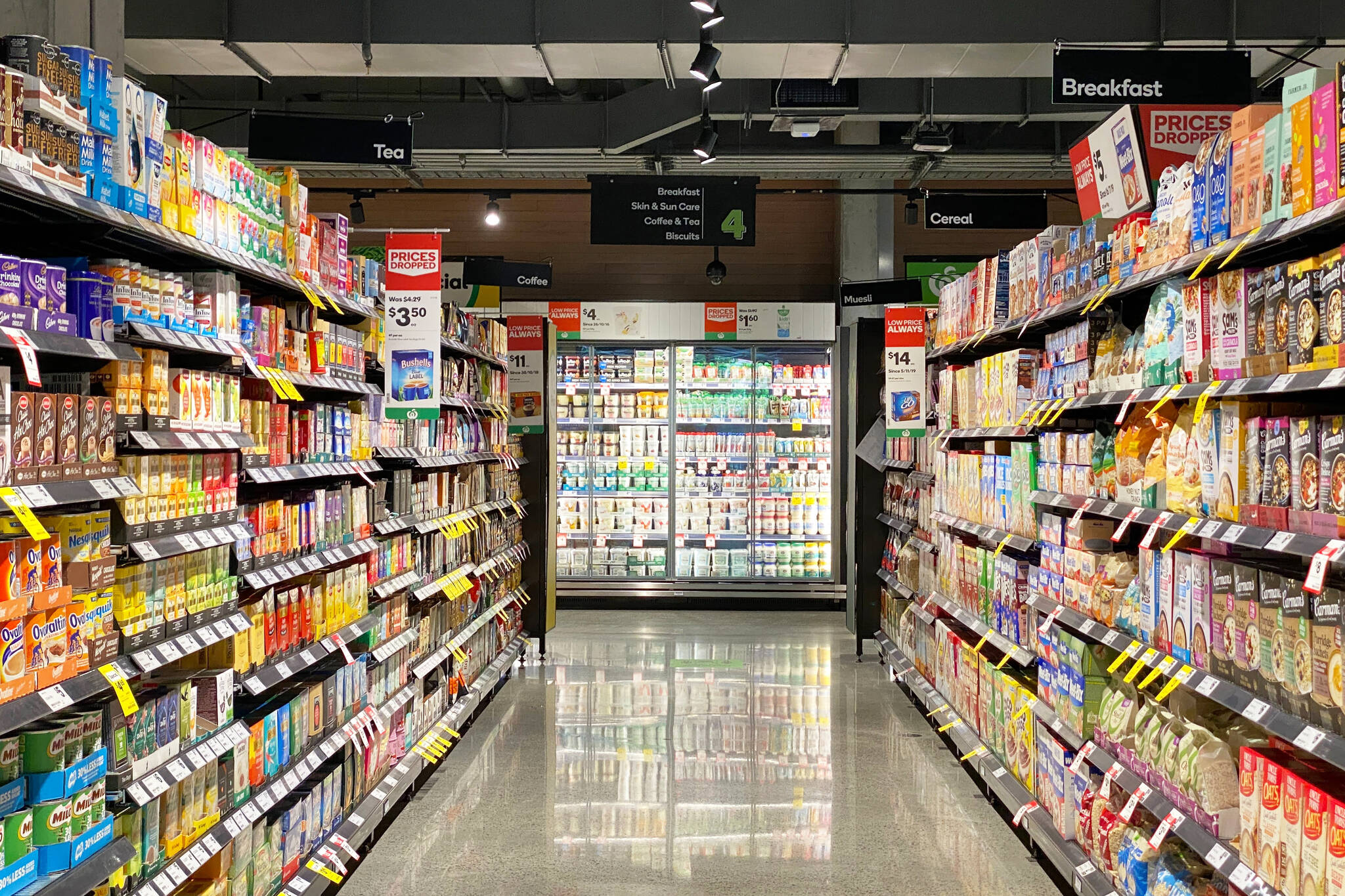
New report suggests food inflation will slow down but prices won't drop
A newfood inflation reportfrom RBC suggests that food prices in Canada will not rise as fast as they did in 2022, but they also aren't showing signs of going down any time soon.
In the past couple of years, food and general inflation have been keeping Canadians on edge and barely scraping by.
Earlier this week, aFinancial Stress Indexby the non-profit organization FP Canada stated that inflation, higher food and gas prices, soaring rents, and a generally higher cost of living have left people drained to the point that half of the country (48 per cent) haslost sleep over finances.
RBC says that over the last two years, food prices alone soared by 18 per cent but maintains that "the supply chain snarls, geopolitical strife and higher input prices behind this rapid price increase have finally moderated."
“像加拿大人的需求可能会减缓,特别是those that earn lower incomes, cut back on pricier groceries due to cost-of-living pressures," reads the report. "These factors will put the brakes on the rapid rise in food prices, but they won’t reverse it."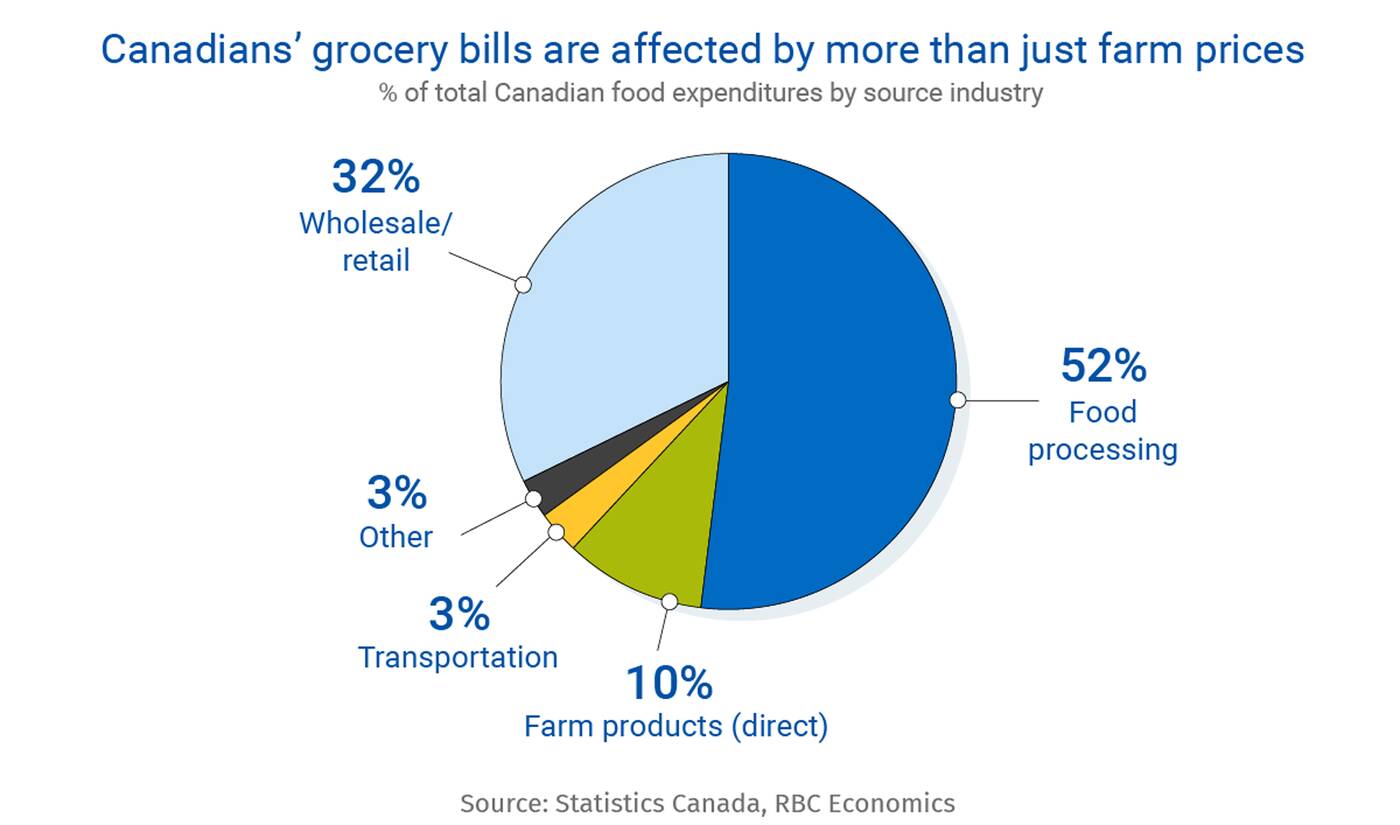 Experts at RBC Economics noted that broader inflation pressures and higher debt payments will continue to soak up Canadians' after-tax income.
Experts at RBC Economics noted that broader inflation pressures and higher debt payments will continue to soak up Canadians' after-tax income.
"Those increased costs are having a larger impact on lower-income households that spend more of their income on non-discretionary food purchases," they wrote. "When higher prices and debt payments dig in individuals tend to either cut back on pricier items or substitute them with cheaper options."
While it may look like Canadians are spending more money on food than ever before, the truth is that since 2021, the value of the grocery dollar has shrunken — we've been paying more forlessfood.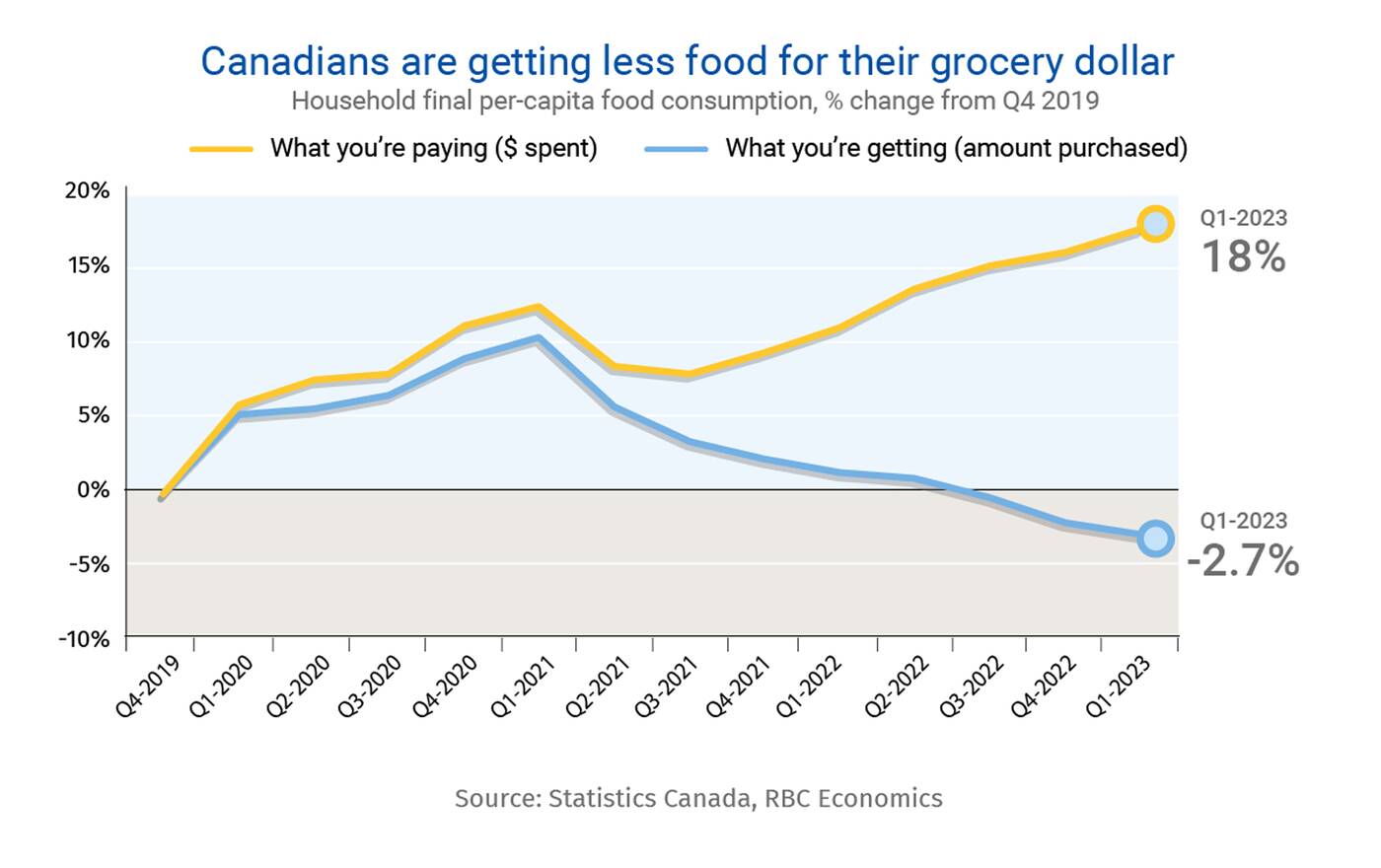 Purchasing power is expected to continue to drop "before ultimately putting a drag on inflation more broadly, but also on the pace of food price increases."
Purchasing power is expected to continue to drop "before ultimately putting a drag on inflation more broadly, but also on the pace of food price increases."
Of course, grocery prices and the demand-supply situation could also be heavily affected by harder-to-control things, such as frequent extreme weather events, which affect production on farms.
These weather events also affect livestock, therefore fluctuating the prices of animal products like meat, milk, and eggs.
"Structural labour shortage issues will only be exacerbated by an aging population, squeezing the supply of workers in the decades ahead while supporting wage growth," the food inflation forecast further reads.
Latest Videos
Latest Videos
Join the conversationLoadcomments


